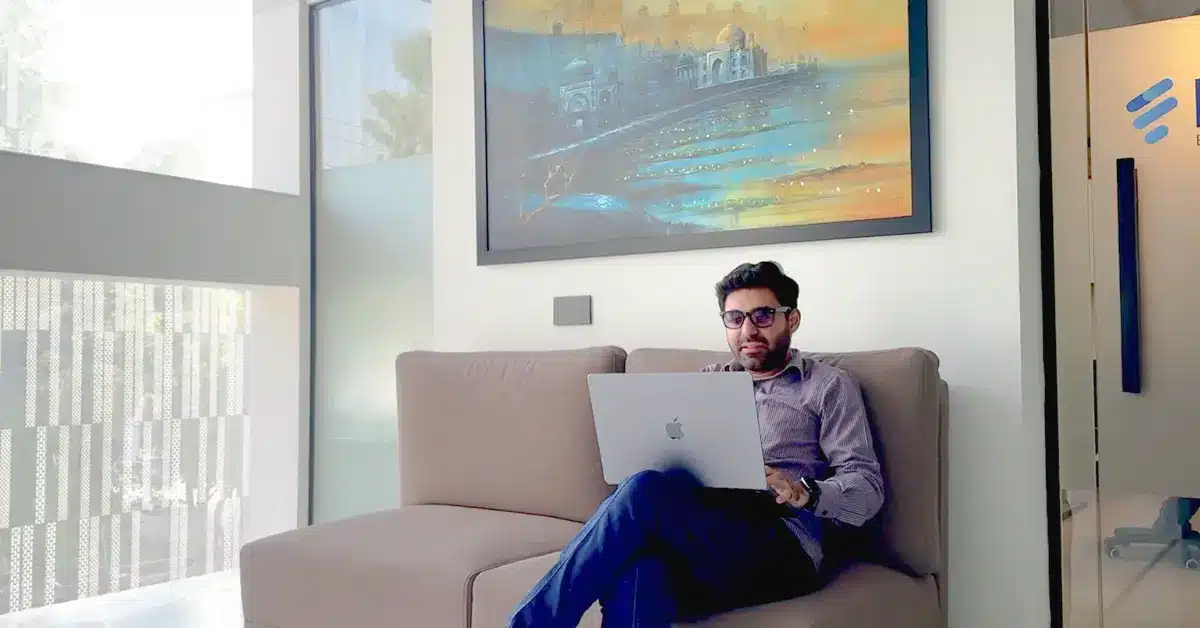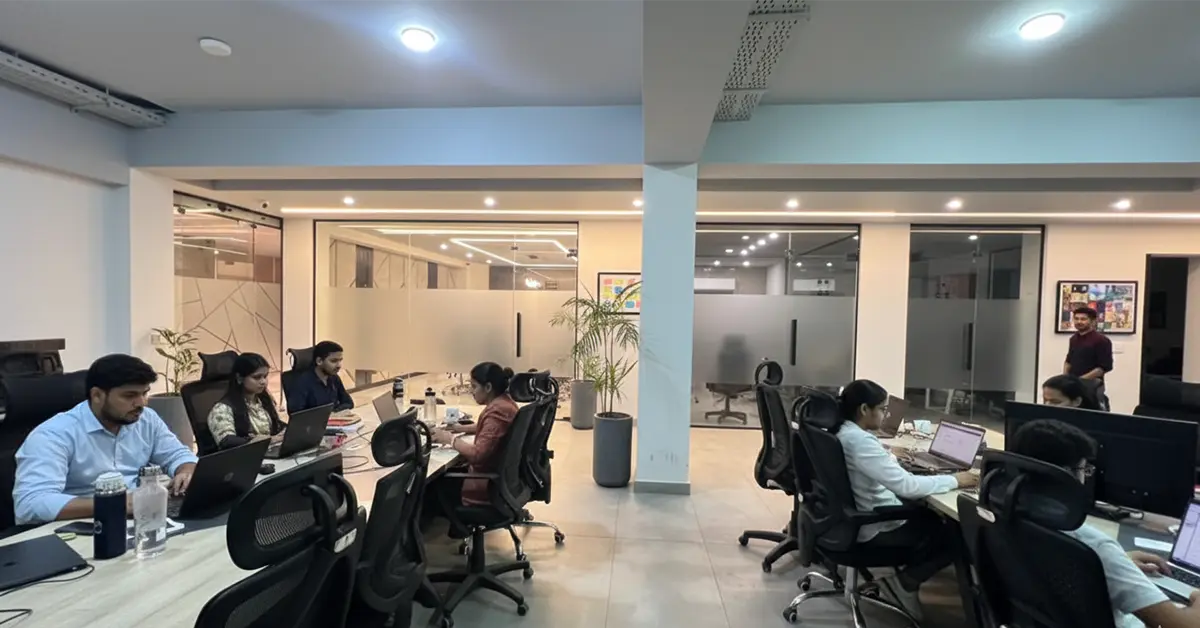The Challenge of Working from Home
Working from home often seems like a dream no commute, flexible hours, and the comfort of your personal space. However, over time, the reality sets in. Your living space starts doubling as your office, with your dining table covered in laptops and cables, and your family assuming you’re available for errands simply because you’re home. It’s a classic trap: the lack of separation between work and life.
Psychologically, the consequences are equally damaging. Without a clear boundary, your work-life balance collapses. You finish your workday only to find that you’re still in the same environment, your brain never fully detaching from work. Over time, this leads to burnout, a common issue among freelancers and founders. The transition from working in a structured office to a home setup often ends up being a counterproductive move.
The Coworking Space Solution
Coworking spaces like WorkPod are more than just shared offices with nice furniture. They provide structured environments that allow professionals to disconnect from their home life, creating a productive space dedicated exclusively to work. Here, the line between work and home life is clearly drawn, offering both psychological and practical benefits.
These spaces are designed to foster productivity. You leave your house, commute to a designated workspace, and once you arrive, you are mentally prepared for work. By simply entering a professional environment, your brain switches into “work mode,” making it easier to focus and get things done.
The Unspoken Power of Community
One of the most significant but often overlooked benefits of coworking spaces is networking. Unlike traditional networking events, which can feel forced and transactional, coworking spaces encourage natural interactions. Lunches, coffee breaks, and casual conversations become opportunities to connect with like-minded professionals. These organic interactions are where real opportunities arise.
For example, a freelancer could find their next client simply by overhearing someone discuss a problem they can solve. This is how WorkPod helps professionals grow—by creating a community where the exchange of ideas happens naturally.
The Startup Ecosystem in Pakistan
Pakistan’s digital exports have grown significantly, reaching $2.8 billion, with a 23% year-over-year increase. However, building a globally competitive startup in Pakistan requires more than just talent and ambition. Startup founders need reliable infrastructure to succeed—specifically, reliable internet, access to professional meeting spaces, and the ability to handle administrative tasks effectively.
While traditional office space is an option, it’s often too expensive for startups. Alternatively, home offices might be cost-effective but come with significant downsides. Coworking spaces, like WorkPod, bridge this gap by offering affordable, flexible office solutions. They provide everything startups need to function professionally: fast internet, backup power, meeting rooms, and administrative support, all bundled into a manageable monthly fee.
Why Flexibility Matters for Startups
Startups are dynamic. What begins as a solo project can quickly evolve into a team of five or more. In these early stages, flexibility is crucial. Traditional office leases lock you into long-term commitments with limited room for growth. In contrast, coworking spaces offer flexible membership options, allowing startups to scale up or down as needed without the burden of expensive lease agreements.
At WorkPod, startups can start with a single desk, expand to a private office as the team grows, and scale back if the business faces financial strain. This adaptability allows founders to focus on what truly matters: growing their business, without worrying about fixed real estate commitments.
Empowering Women Entrepreneurs in Pakistan
One of the most notable trends in Pakistan’s coworking spaces is the growing presence of women entrepreneurs. With over 70% of Pakistan’s population under 30 years old, women are increasingly choosing entrepreneurship as a career path. However, the traditional office culture in Pakistan poses unique challenges for women, particularly in navigating complex workplace dynamics.
Coworking spaces, like WorkPod, offer a professional environment without requiring women to rent entire office spaces. This model allows them to network with other founders, access mentorship, and be part of a supportive community. Women in coworking spaces have reported gaining credibility and a sense of empowerment, enabling them to thrive in their businesses while maintaining work-life balance.
The Hidden Growth of Coworking Spaces
While coworking spaces often run workshops and host speaker sessions, the real growth and education occur through informal exchanges. The beauty of being surrounded by entrepreneurs is the constant stream of learning from those solving similar problems. Whether it’s picking up tips on funding rounds or learning which suppliers offer the best service, coworking spaces provide the infrastructure for learning by proximity.
In a developing market like Pakistan, where formal startup education is still maturing, coworking spaces offer an informal yet highly effective way for founders to learn from peers.
Why Coworking Spaces Matter for Pakistan’s Economy
The growth of coworking spaces directly impacts Pakistan’s economy by enabling freelancers, startups, and small businesses to scale without incurring traditional office space costs. These businesses contribute significantly to the digital economy, solving real-world challenges in areas such as fintech, supply chain logistics, and agricultural technology.
Coworking spaces are the infrastructure layer that supports these businesses. They offer a sustainable, low-cost solution that enables entrepreneurs to focus on growth, not operational headaches.
WorkPod: The Next Step for Your Startup
For startups looking to grow without the hassle of managing office space, WorkPod offers a solution that addresses both practical and psychological needs. With reliable internet, meeting rooms, and a professional business address, WorkPod is built to support businesses at every stage of their growth journey.
The affordable cost and flexibility of coworking spaces make them an invaluable asset for startups in Pakistan. WorkPod provides the ideal environment for building your business, surrounded by a community that understands the challenges you face.
FAQs
How much does coworking space cost in Pakistan compared to traditional offices?
Traditional office rentals in major Pakistani cities cost 80,000-150,000 rupees per month, plus utilities and maintenance. Coworking spaces like WorkPod charge approximately 30,000 rupees per seat, with everything included—high-speed internet, backup power, meeting rooms, and administrative services.
Can I scale my workspace as my startup team grows?
Yes, coworking spaces offer flexible solutions, allowing you to scale your workspace based on your needs. You can start with a single desk, expand to a private office, and adjust as your team grows or contracts.
Are coworking spaces suitable for women entrepreneurs?
Absolutely. Coworking spaces provide women with professional environments and the freedom to work on their own terms. Many women entrepreneurs choose coworking because of the credibility, flexibility, and supportive community it offers.
What amenities are typically included in coworking memberships?
Most coworking spaces offer high-speed internet, 24/7 electricity with backup, meeting rooms, printing facilities, reception services, and mail handling. Premium spaces, like WorkPod, also offer administrative assistance, call answering, and networking opportunities.






